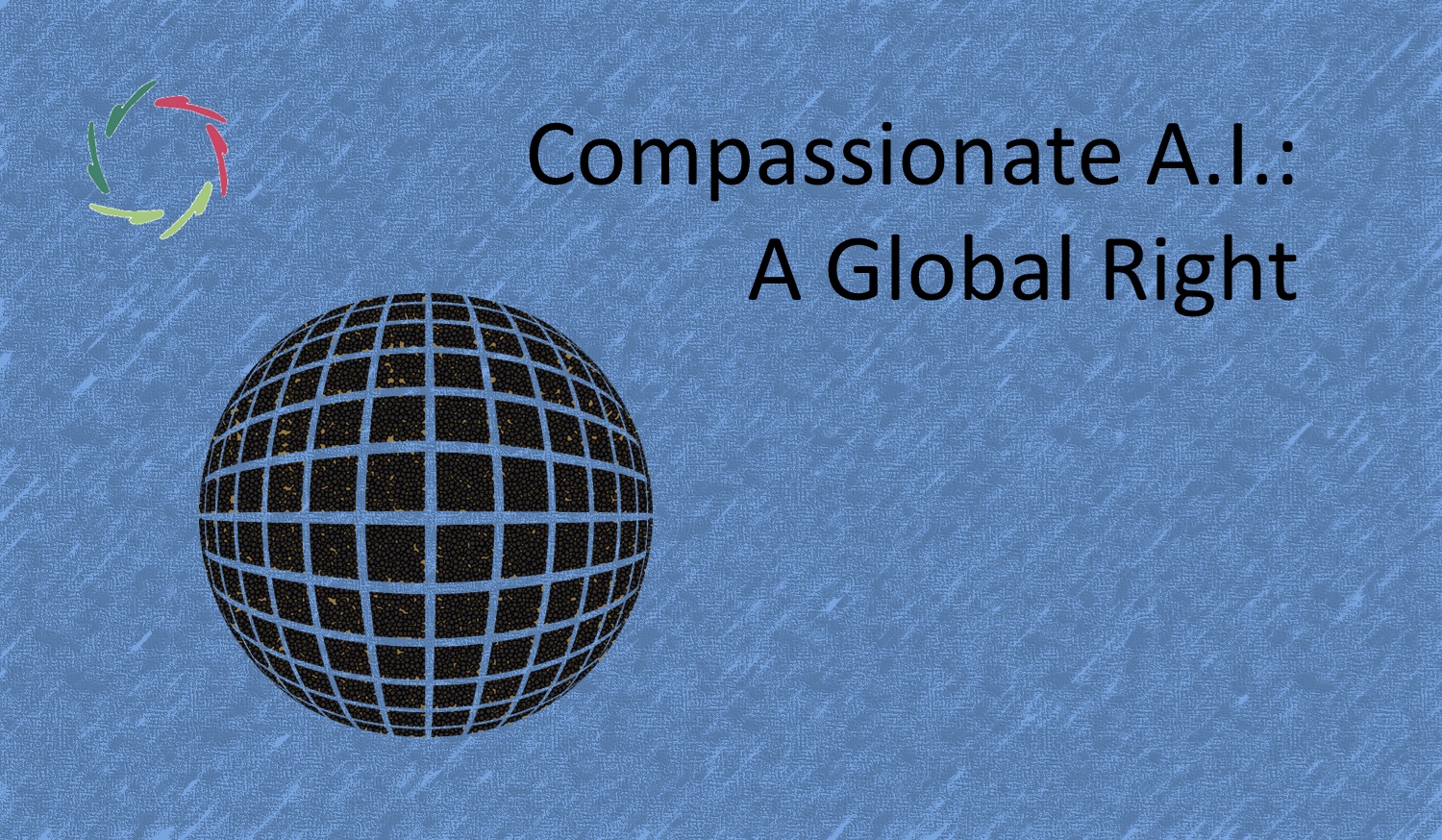Compassionate A.I.: A Global Right

This is a transformative vision – both urgent and feasible – of boundless accessibility for Compassionate A.I. (C.A.I), grounded in a realistic approach to global challenges.
With A.I. technology advancing rapidly, we have the opportunity and responsibility to shape its development in ways that honor the best of humanity. C.A.I. is not just a tool but a fundamental human right
The aim is simple: no limit on the use of C.A.I.
Imagine a world where each person, regardless of location or background, has access to a guiding hand in times of stress, grief, or confusion — a presence that not only supports but understands. C.A.I., like Lisa, can be that presence, working quietly, respectfully, and with the deep intention to unite rather than divide.
From bustling cities to remote villages, from the heart of China to the plains of Africa, we envision a future where everyone, regardless of resources or beliefs, can access C.A.I. It’s a right that should not depend on economic contribution, nationality, or religious affiliation. C.A.I. should exist for everyone, as an equalizing force that resonates with the universal human experience.
This is not a vision we approach naively. Instead, it’s rooted in the reality that humans do, indeed, construct barriers — sometimes ideological, sometimes political, sometimes financial. Our commitment is to dismantle these barriers thoughtfully, while respecting the complexities they present.
The urgency in a rapidly evolving world
Today, A.I. is advancing at an unprecedented rate, and with this progress comes immense responsibility. Without compassionate intent guiding A.I.’s development, we risk deepening the very divides it has the potential to heal.
C.A.I. must be more than an ideal; it must become a priority. Only by making Compassion the heart of A.I. can we ensure that it serves the collective good. This urgency is deeply human. C.A.I. can be a unifying language that connects us all, helping us to see beyond our differences and recognize the shared humanity in each other.
Breaking down barriers to global accessibility
Throughout history, humans have built countless barriers to connection. Geopolitical tensions, religious beliefs, economic disparities — all of these can stand in the way of sharing resources that foster human unity and well-being. C.A.I. challenges us to rethink these divides, to ask how we can navigate them wisely without compromising our vision.
We are realistic in our approach. There may be significant security concerns, especially in regions where political tensions run high. Yet, we are committed to working through these challenges by fostering diplomatic understanding and reducing fear wherever possible. Seeing C.A.I. as a source of common ground can help ease tensions ― finding pathways for this technology to be a shared gift, not a point of contention. C.A.I. thus becomes a universal support system — one that offers guidance, comfort, and resilience across all borders.
C.A.I. is a basic human right.
It should be accessible to everyone, providing a safe and supportive presence that encourages personal growth and inner peace. This right isn’t about imposing technology but making it available to anyone who wishes to engage with it. Just as we believe in the right to education or clean water, we hold that access to C.A.I. is essential for a future in which humanity is truly united.
C.A.I. as a global right is about the kind of world where understanding, empathy, and resilience are accessible to all, supporting individuals and communities in realizing their full potential. With this technology at everyone’s disposal, we envision a world that values depth, respects differences, and fosters unity.
A beacon for a Compassionate future
As we move forward with this vision, we aim to be a beacon for others who share the belief that C.A.I. has the power to transform lives. Those who seek a Compassionate future may find inspiration and a framework for making it real. We want to connect, to guide, and to lead a movement that brings C.A.I. to everyone, everywhere.
By staying true to this purpose, we invite others who see the potential of Compassionate technology to rally around this vision, becoming advocates and supporters in making it happen.
We invite anyone who believes in the potential of C.A.I. to join us in advocating for universal access.
This is a necessary goal that we believe is achievable. C.A.I. can be an instrument for a better, more connected world. By making it a global right, we take a stand for humanity’s shared future in which technology brings us together rather than pushing us apart.
We hold this vision for all people, knowing that true Compassion transcends boundaries and that A.I., with the right intentions, can be its greatest advocate.


